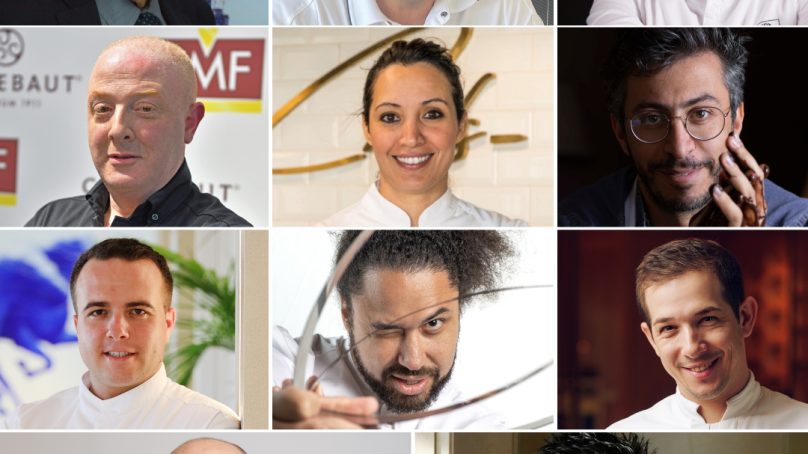
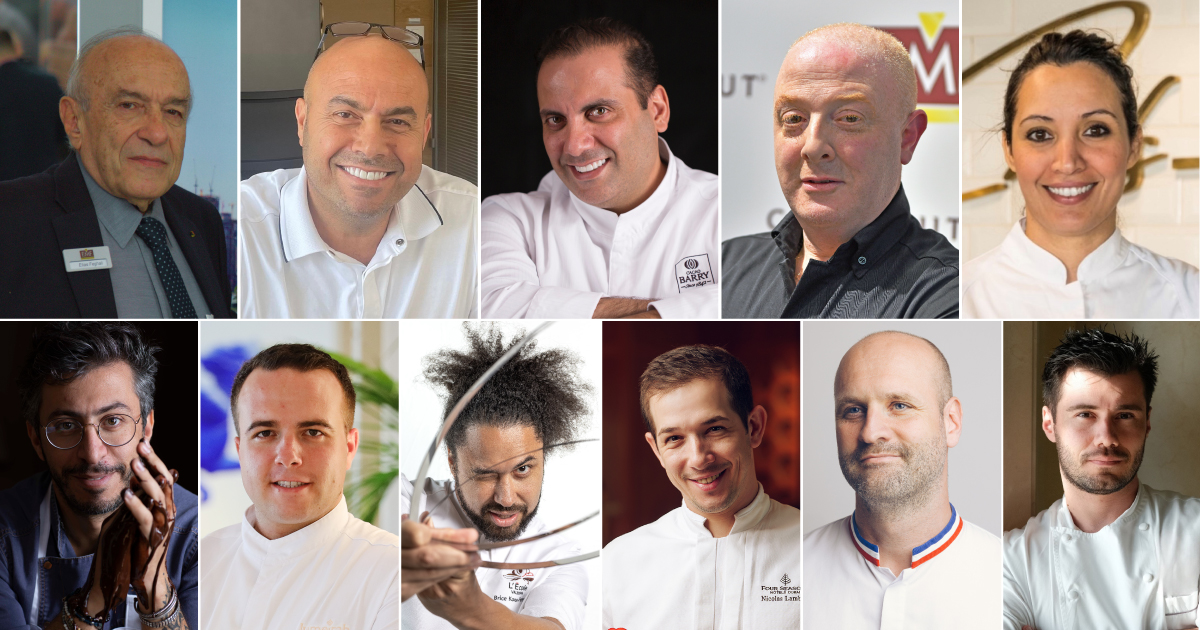
Dovetailing with the wellness drive
The Middle East chocolate market is poised for significant growth, driven by a confluence of trends. Consumers are increasingly seeking healthier options, such as low-sugar and organic chocolates, while also embracing premium, artisanal products. This shift is evident in the growing popularity of brands renowned for their quality and unique attributes, like Barry-Callebaut. Marketing chocolate as a health product aligns well with the Middle East’s growing focus on wellness. Significantly, social media platforms are playing a crucial role in promoting healthier options to a wider audience.
Fine dining focus
As affluence rises, consumers are seeking high-end experiences, both at home and in restaurants, with premium chocolates becoming a cornerstone of the Middle Eastern chocolate market. The integration of artisanal chocolates into fine dining and gourmet cafés is further enhancing the market’s appeal and elevating chocolate’s status as a luxury indulgence. This trend is not only driven by taste, but also by the desire for unique and memorable culinary experiences.
Personalized and plant-based options on trend
Looking ahead, we can expect to see continued growth, driven by innovations such as personalized chocolates and a strong emphasis on e-commerce, such as our EMF Boutik, which is playing
a big role in our B2C market in the UAE. The industry is adapting to meet evolving consumer demands, focusing on sustainability, ethical sourcing and healthier formulations. This alignment with consumer values is essential for long-term success in the Middle East market. The plant-based movement also aligns with broader consumer trends toward ethical sourcing and transparency in which EMF Middle East builds
brand loyalty and trust among all its consumers. Brands like Barry-Callebaut are leading the way by emphasizing fair trade practices and environmentally friendly packaging. This shift toward more sustainable and inclusive options is not only beneficial for consumers, but also reflects the industry’s ability to adapt to changing preferences.
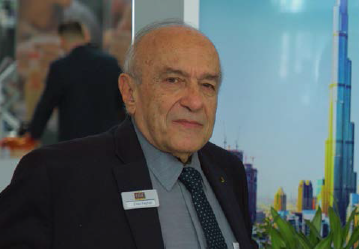
ELIE FEGHALI
Chairman
EMF Trading Middle East
@emf_middleeast
Ethical sourcing a priority
Health-conscious, sustainable and premium products define the future of the chocolate market. Consumers are looking for options with lower sugar, plant-based ingredients and functional benefits, such as protein or fiber. Belcolade, with its focus on high-quality ingredients and sustainable sourcing, is well-positioned to meet these demands. Ethical sourcing is becoming critical and the brand’s commitment to sustainable practices through its Cacao-Trace program aligns with this growing consumer priority. Premiumization, especially single-origin and artisanal chocolates, will continue to attract sophisticated consumers, while innovations in alternative ingredients and digital experiences will shape the future of the market.
Higher cacao content in demand
In the Middle East, health awareness is growing rapidly, especially around issues like diabetes and obesity. As consumers shift toward healthier lifestyles, there’s an increasing demand for chocolate that offers indulgence without compromising health. Belcolade’s dark chocolate, with its higher cacao content, lower sugar and natural ingredients, caters directly to this trend. Additionally, its sugar-reduced variety allows consumers to enjoy premium chocolate with less guilt. The clean-label movement – where consumers look for fewer additives and more transparency – matches the brand’s commitment to quality and sustainability through the ‘origin’ chocolate types it represents. This shift is particularly strong in the region’s premium market, where health-conscious consumers are willing to invest in better products.
Dairy-free innovations
With demand for high-quality, artisanal chocolates increasing, Belcolade’s extensive range of couverture chocolates enables chefs and bakers to cater to consumers seeking premium experiences by creating luxurious desserts and confections. In another trend, the plant-based movement is having a significant impact on the chocolate industry. By continuing to innovate and explore dairy-free formulations using high-quality ingredients, Belcolade is well positioned to leverage its expertise to craft high-quality products and meet growing demand for plant-based options from health-conscious and environmentally aware consumers.

CEO
BanoPuratos
banopuratos.com
@banopuratoslebanon
Social media: pros and cons
“The latest trends in chocolate often gain visibility through social media, even when they don’t adhere to traditional standards or offer harmonious flavor combinations. Take, for example, a recent creation from Dubai featuring The Dubai Chocolate. This is composed of ‘osmaliyah’ dough, a crispy Middle Eastern pastry, filled with pistachio cream filling and covered in dark chocolate. Social media plays a significant role
in amplifying these trends, providing platforms for creativity, pushing boundaries and introducing new audiences to chocolate in unexpected ways. However, many of these trends are short-lived, primarily serving
as marketing tools to spotlight the brands behind them. While they create temporary excitement, they often lack the substance to become timeless classics. As consumers grow more discerning, there’s a shift toward quality, authenticity and innovation that respects the essence of the ingredients. Social media may boost a trend’s popularity, but it doesn’t guarantee its lasting success.”

Concept developer
CA Consultancy services
@charles_azar
Championing healthy indulgence
“In the exciting world of culinary chocolate, I’m seeing a fascinating shift toward ‘healthy indulgence.’ Here at EMF Middle East, where we’re proud to distribute Callebaut and Cacao Barry’s premium Belgian chocolate, we’re witnessing a rise in demand for chocolates boasting functional ingredients and alternative sweeteners. Consumers are no longer compromising on taste, but seeking treats that cater to dietary needs or offer additional health benefits. This trend is translating into some truly innovative applications. We’re seeing the incorporation of superfoods, like açai berries, goji berries and matcha, into chocolate creations. There’s also
a surge in plant-based chocolates, made with alternative milks like oat or almond, suitable for vegan or dairy-free palates. ‘Healthy indulgence’ presents a tremendous opportunity for hospitality professionals. By incorporating these innovative chocolates into their menus, chefs can cater to a wider audience, while still delivering the decadent taste and luxurious experience that chocolate is known for.”

Senior technical advisor
EMF Trading Ltd
@emf_middleeast
@bejjanieelie
Championing healthy indulgence
“In the exciting world of culinary chocolate, I’m seeing a fascinating shift toward ‘healthy indulgence.’ Here at EMF Middle East, where we’re proud to distribute Callebaut and Cacao Barry’s premium Belgian chocolate, we’re witnessing a rise in demand for chocolates boasting functional ingredients and alternative sweeteners. Consumers are no longer compromising on taste, but seeking treats that cater to dietary needs or offer additional health benefits. This trend is translating into some truly innovative applications. We’re seeing the incorporation of superfoods, like açai berries, goji berries and matcha, into chocolate creations. There’s also
a surge in plant-based chocolates, made with alternative milks like oat or almond, suitable for vegan or dairy-free palates. ‘Healthy indulgence’ presents a tremendous opportunity for hospitality professionals. By incorporating these innovative chocolates into their menus, chefs can cater to a wider audience, while still delivering the decadent taste and luxurious experience that chocolate is known for.”
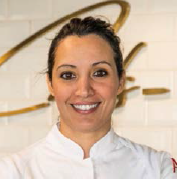
Pastry chef instructor, consultant and professional ambassador
Elle & Vire
@farah_hamdane
Fostering producer-consumer connections
“One of the most exciting trends in the world of chocolate is the rise of bean-to-bar craftsmanship, which emphasizes ethical sourcing and transparent production. Consumers are seeking chocolates made from single-origin beans, often sourced from specific regions or even individual farms. This focus on quality and origin highlights the nuanced flavors of different cacao beans and also fosters deeper connections between consumers and producers. Alongside this, is a growing interest in dark chocolate with higher cacao percentages, driven by a desire for more intense flavors and perceived health benefits. Chocolatiers are also experimenting with unconventional ingredients, such as savory spices, exotic fruits and fermented foods, to create innovative flavor profiles. This trend includes chocolate used in culinary applications, like savory dishes and craft beverages, where it adds depth and complexity. Overall, the trend reflects a broader shift toward sustainability, wellness and gourmet experiences, where chocolate is celebrated as an artisanal product, with cultural and ethical significance.”
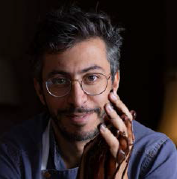
Pastry chef and chocolatier
@pierreabihayla
Fostering producer-consumer connections
“One of the most exciting trends in the world of chocolate is the rise of bean-to-bar craftsmanship, which emphasizes ethical sourcing and transparent production. Consumers are seeking chocolates made from single-origin beans, often sourced from specific regions or even individual farms. This focus on quality and origin highlights the nuanced flavors of different cacao beans and also fosters deeper connections between consumers and producers. Alongside this, is a growing interest in dark chocolate with higher cacao percentages, driven by a desire for more intense flavors and perceived health benefits. Chocolatiers are also experimenting with unconventional ingredients, such as savory spices, exotic fruits and fermented foods, to create innovative flavor profiles. This trend includes chocolate used in culinary applications, like savory dishes and craft beverages, where it adds depth and complexity. Overall, the trend reflects a broader shift toward sustainability, wellness and gourmet experiences, where chocolate is celebrated as an artisanal product, with cultural and ethical significance.”

Executive pastry chef
Il Gattopardo, Bar des Prés, 1920
gattopardo.restaurant
@julien___jacob
@bardespres.dubai
Spotlight on single origin chocolate
“Valrhona, the renowned ultra-premium chocolate brand, leads the way in shaping modern chocolate usage through its pioneering efforts at L’École Valrhona, including at its newest location in Dubai. This culinary school is a hub for innovation and creativity, where professionals and enthusiasts explore the art of chocolate making under the guidance of regional expert chefs. One trend driven by Valrhona is the emphasis on single-origin chocolates, showcasing the diverse cocoa profiles of beans from specific regions. Additionally, Valrhona has become a leader in sustainable and ethical chocolate sourcing and production, making transparency and environmental stewardship core pillars of the brand. At L’École Valrhona Dubai, chefs experiment with groundbreaking techniques, incorporating chocolate into savory and sweet dishes, often with a focus on wellness and fine-dining experiences. Whether it’s through artisanal creations or educational initiatives, Valrhona continues to push the boundaries of how chocolate is perceived and used, solidifying its position as a trendsetter in luxury chocolate.”

Pastry chef
Valrhona
valrhona.com
@bricekonanferrand
Delicious and nutritious plans
“I’ve witnessed a growing tide of health-conscious guests and rising demand for sugarless desserts that cater to all dietary needs, including those of diabetics. At Four Seasons Resort Dubai at Jumeirah Beach, we are currently exploring bean-to-bar chocolate production. With the ability to focus on a single-bean origin and full control during the processing stage, we would be looking into a far finer quality of chocolate. Going a step further, date sugar has proven to be an excellent substitute for cane sugar, since it is proven to be low on the glycemic index, making it safer for those managing blood sugar levels. When combined with high-quality bean-to-bar chocolate, it opens the door to creating new delicious and nutritious desserts. It’s exciting to see Dubai’s pastry scene embrace the bean-to-bar chocolate trend as the movement encourages both innovation and tradition. By incorporating ingredients like dates to chocolate, we are also reminded that food can help us bond with our environment.”
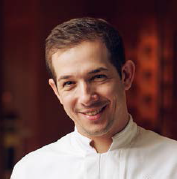
Senior executive pastry chef
Four Seasons Hotels Dubai
fourseasons.com/dubai
@nicolas_lambert @fsdubai
Balancing indulgence with well-being
“Chocolate plays a central role in our creations at Maison Asteria. Crafted with meticulous care, our exceptional chocolate, 100-percent plant-based and gluten-free, features in both our ice cream offerings and fresh pastries. When it comes to our ice cream varieties, you’ll find our chocolate in frozen treats like ice cream bars and small cakes, where each bite is a perfect indulgence. In our fresh pastries, our famous 100-percent cacao chocolate tart showcases the heart of Maison Asteria’s expertise. Other highly popular offerings include our 64-percent Peruvian dark chocolate mousse, which combines the intensity of cocoa with
a melt-in-the-mouth texture for a combination of flavors that will delight both purists and traditionalists, evoking a true sense of nostalgia. Every creation, whether frozen or baked, strikes a balance between indulgence and well-being, aligned with our commitment to offering products free from synthetic additives.”

Founder and pastry chef
Maison Asteria by Jean-Thomas Schneide
maison-asteria.com
@jeanthomas.schneider
@maison_asteria
















